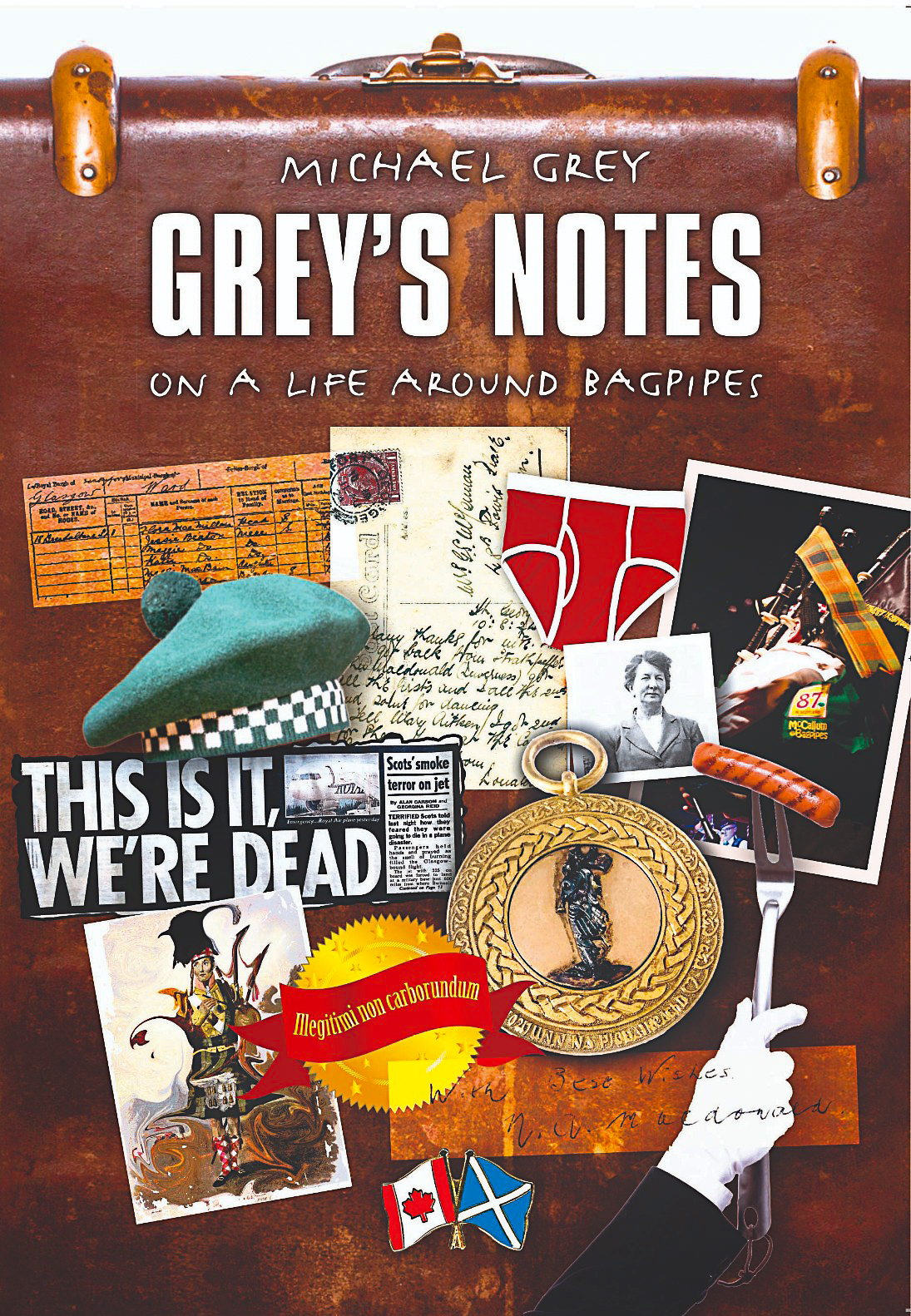A Tune from John MacFadyen
November 13, 2021 on 5:13 pm by Michael Grey | In Solo Piping, Stories, Video | Comments Off on A Tune from John MacFadyenThe piobaireachd, Rory McLoude’s Lament has always been a favourite. The old Anglicized spelling of MacLeod is likely connected to its first appearance in the Campbell canntaireachd manuscripts. And, as this is the spelling chosen by the editors of book eleven of The Piobaireachd Society Collection (1966), this is how pipers generally spell the tune. But that’s enough on letters. It’s a fine piece; in fact, Joseph MacDonald, in his Compleat Theory (1762) described it as a “…very soft lament …”. This tune, too, was among the first I learned from the hands of Bill Livingstone. He, in turn, was taught this tune by John MacFadyen (1926-1979).
For as long as I can remember I have heard references to “MacFadyen”. The late, Ed Neigh, was especially keen at frequently invoking his name in reference to a tune or anecdote related to music or an event, “Well, I can tell you MacFadyen didn’t play it that way! He was bold and went for it and held those cadences just …”. That sort of thing. Ed had nothing but respect for John MacFadyen’s playing – as did everyone, evidently. That, and his legendary wit and all-round intellectual heft. He was some fellow, it seems.
Bill Livingstone, Jim McGillivray, Dave Martin (of Detroit), Mike Cusack – and, of course, Ed – are among the many who benefited from his teaching. In the early-mid 1970s John MacFadyen would hold summer schools on the farm of Mac Campbell, just south of the border town of Sarnia, Ontario. Bill speaks of these schools in a palpably reverent way. For Bill, and likely the others, the sessions with the master piper were transformative. Bill, then a young and newly-minted lawyer, didn’t have a lot of leeway for time off – he had to work. He said to me he’d occasionally find himself having to drive to the farm to see MacFadyen and return home – the same day. That’s about a six hour return drive (well, maybe five, taking into account Bill’s, er, energetic driving). That’s a hard comparison to a lazy online lesson in your track pants!
Reflecting on what I have heard of John MacFadyen and the influence he clearly had on a generation of front-line piobaireachd players, I’d have to think that without his presence and teaching piping in Ontario, especially, would have been different. It wouldn’t have been as good.
John MacFadyen was born in Glasgow. His father came from Mull and his mother from Tiree. John’s brothers Duncan, Iain and sister Freena, were all excellent pipers, too. Duncan and Iain, you’ll know, scored the big prizes, too. Bill mentioned that John MacFadyen had lessons from John MacDonald (Inverness) but was unsure of other sources. Rab Wallace’s Piping Press provides additional information: he was taught by his father and later Roddy MacDonald, South Uist (and the Glasgow Police Pipe Band), as well as R U “Bob” Brown.
I digitized a good old vinyl record from my collection; one with John MacFadyen playing nothing but piobaireachd. I own none of the copyright. I provide this tune as a way to help others get easier access to John MacFadyen’s artistry: tunes played boldly; with authority and confidence. I’ll respectfully disagree with Joseph MacDonald. For me there is not much “softness” to Rory McLoude in MacFadyen’s rendition: there is, though, more than a little touch of heartbreak and anguish. This performance was recorded live at the 1969 Silver Chanter recital-competition in the drawing room of Dunvegan Castle, Isle of Skye. Seumas MacNeill wrote it was likely the first time the tune was heard within the castle walls in centuries. For his efforts that evening, John MacFadyen, carried home the Silver Chanter.
Aficionados will note MacFadyen’s unusual treatment of the first variation where he departs from the direction of the score and highlights the lowest notes on the chanter. Like it or not, I’d say this is the mark of a singularly confident artist. The world can never have too many of those.
Here’s to John MacFadyen and his many pupils who keep his music and perspective alive in their teaching.
M.
No Comments yet
Sorry, the comment form is closed at this time.
Dunaber is using WordPress customized and designed by Yoann Le Goff from A Eneb Productions.
 Entries and comments
feeds.
Valid XHTML and CSS.
Entries and comments
feeds.
Valid XHTML and CSS.


